- Army
- Air Defense Systems
- Anti-tank systems and vehicles
- Armored Vehicles
- Armoured personnel carriers
- Artillery Vehicles and Weapons
- Command Post
- Communication Vehicles and Systems
- Electronic Warfare
- Engineer | Maintenance Vehicles
- Infantry Fighting Vehicles
- Main Battle Tanks
- Missiles
- Tactical and Logistic Vehicles
- Radars
- Unmanned Systems
- Weapons
- Navy
- Air
Fennek
Fennek KMW
Wheeled 4x4 reconnaissance armored vehicle - Germany
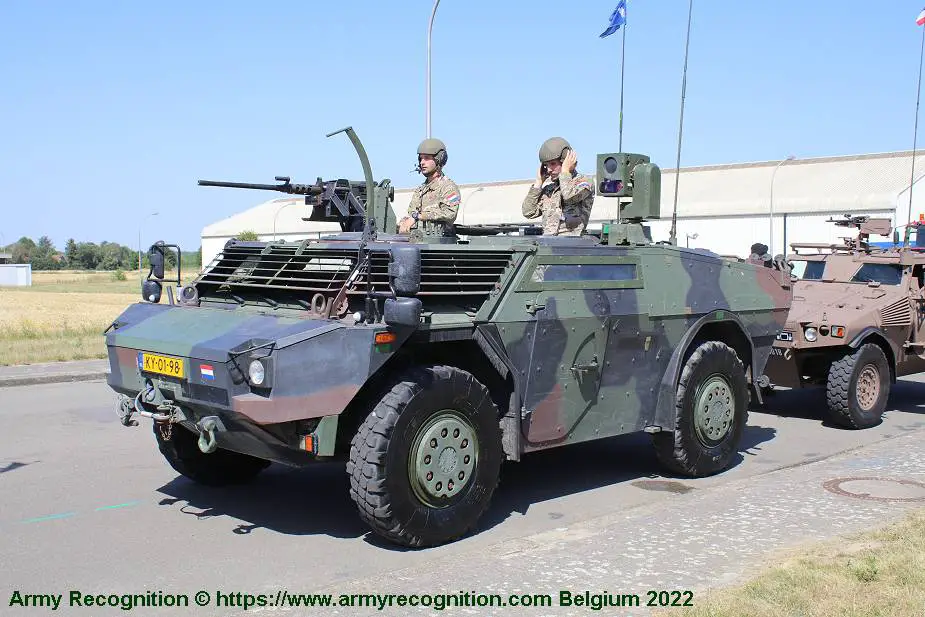
Description
The Fennek is a 4x4 reconnaissance armored vehicle produced by the German Defense Company KMW (Krauss-Maffei Wegmann). The main role of the Fennek is reconnaissance, thanks to a retractable mast mounted towards the rear of the hull on the left side, which is fitted with a sensor pod containing a thermal camera, day camera, and a laser range finder. A scout party equipped with this vehicle is able to operate independently over a period of five days. Armour and NBC protection ensure optimum crew safety. The Fennek ban easily transported by rail, truck, or ship makes for the easy and rapid extension of its deployment area. The Fennek was originally developed by SP aerospace and vehicle systems bv as a private venture under the name project of MPC (Multi-Purpose Carrier). For the Royal Netherlands and German army requirement, SP aerospace and vehicle systems and Krauss-Maffei Wegmann developed a specific derivative of the MPC called the Fennek vehicle. By late 1998, a total of five prototypes had been built, two for the German Army, and two for the Royal Netherlands Army. Late in 2001, the Netherlands Ministry of Defence announced a contract worth about Euro 500 million for the supply of 612 Fennek reconnaissance vehicles for the German and Netherlands armies. The Netherlands Ministry of Defense is also acting on behalf of the German Ministry of Defense for this program.
Fennek KMW main variants:
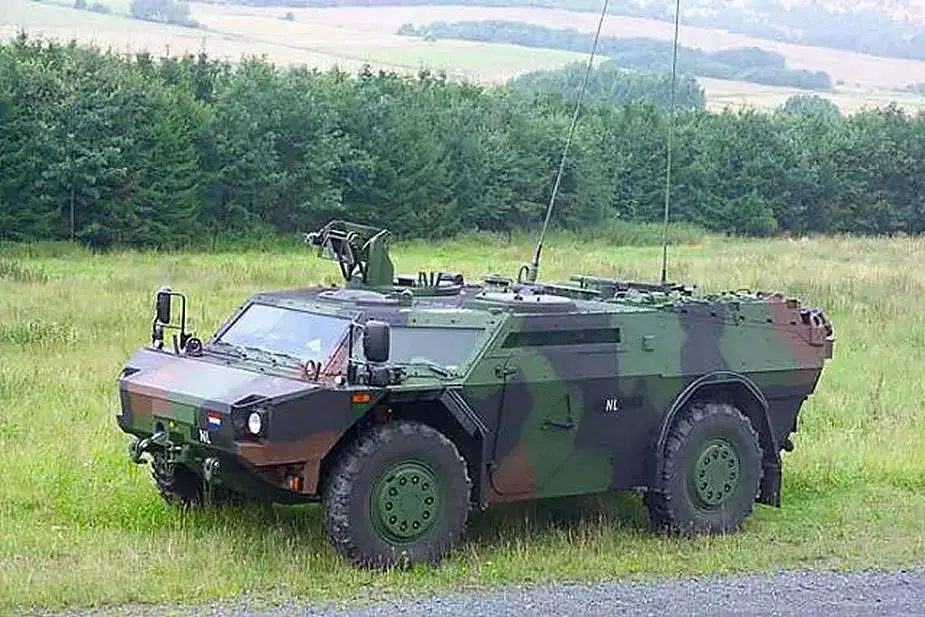 |
| Fennek medium-range anti-tank vehicle: the vehicle is fitted with anti-tank guided missiles. For rapid deployment, three guided missiles are transported on the exterior of the vehicle while two more missiles plus the launching ramp are stowed away in the soldier's section of the vehicle. |
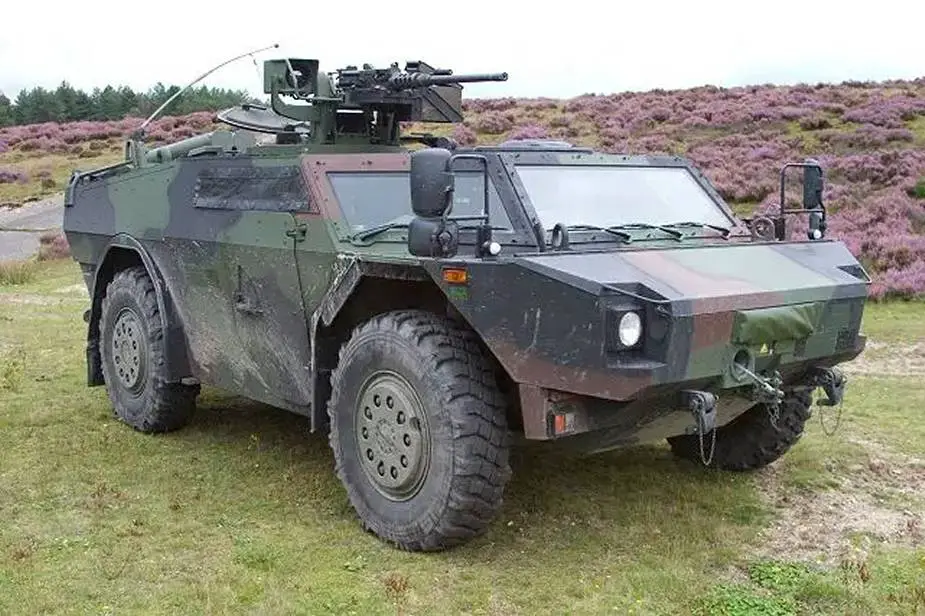 |
| Fennek command and control vehicle: which is known within the Dutch Army as “Allgemeine Dienste” (AD), can be employed universally. Instead of monitoring and reconnaissance equipment, it features equipment storage space for use in a variety of missions. The engineers of the German and Dutch Armies operated the first vehicles of this configuration beginning in 2005. |
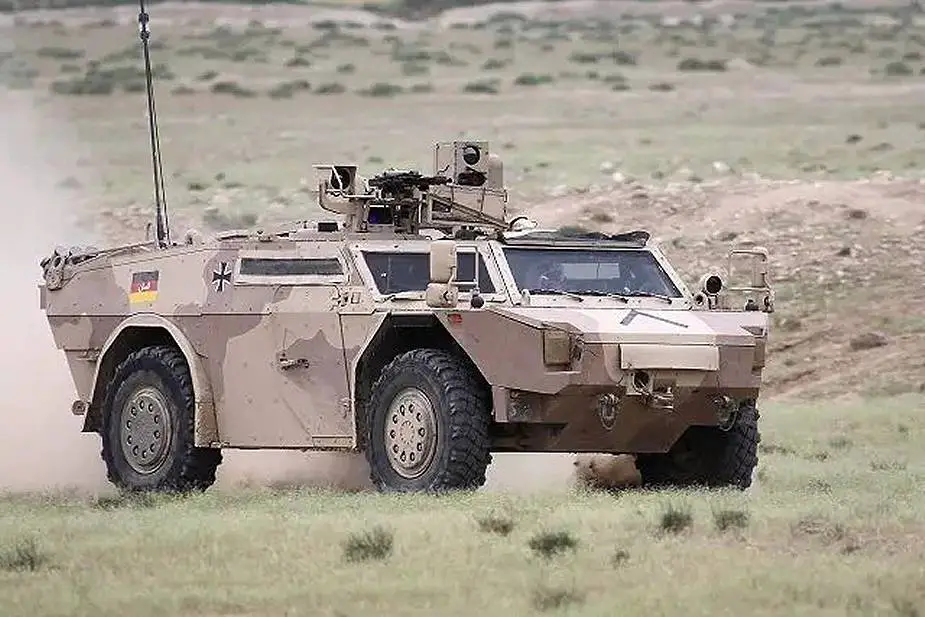 |
| Fennek artillery observer: Its distinguishing characteristic is its improved navigation system, which provides extraordinarily high precision for target localization in terms of elevation and distance and can be used in a dismounted mode. The acquired target information, as well as the target assignment, are transferred by the ADLER II artillery control system to the Fire Support Officer (FSO). Strike monitoring and possibly required corrections are carried out by the FENNEK’s ADLER II weapon and fire control system. Furthermore, the Artillery Observer is equipped with a map-based positioning module. |
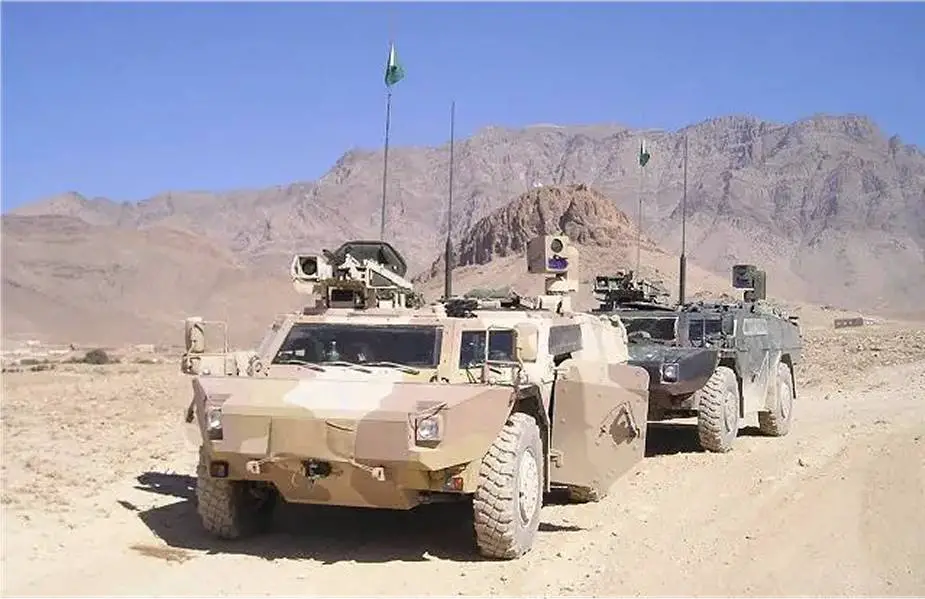 |
| Fennek Joint Fire Support Team: For the German Army KMW has developed and delivered the Joint Fire Support Team (JFST) variant. The team (two FENNEK vehicles) consists of an Artillery Observer and a Forward Air Controller (FAC). The JFST includes an exceptionally powerful long-range BAA of the latest generation. The additional connection to the voice and data radio communication of the German Air Force and Navy make the FENNEK a unique asset within the JFST. Moreover, a laser designator can locate targets for the Air Force and guide laser-guided munitions to the designated targets. |
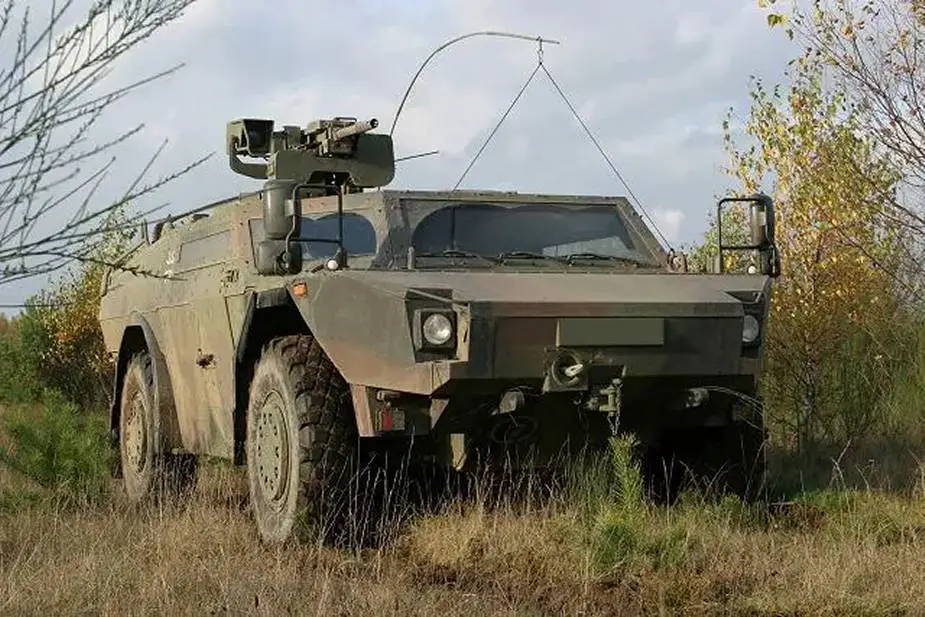 |
| Fennek pioneer vehicle: The Pioneer variant of the FENNEK is primarily deployed by its users for exploration and reconnaissance, making use of its near-to-noiseless mobility, extensive protection, and ability to defend itself as well as its great self-sufficiency. |
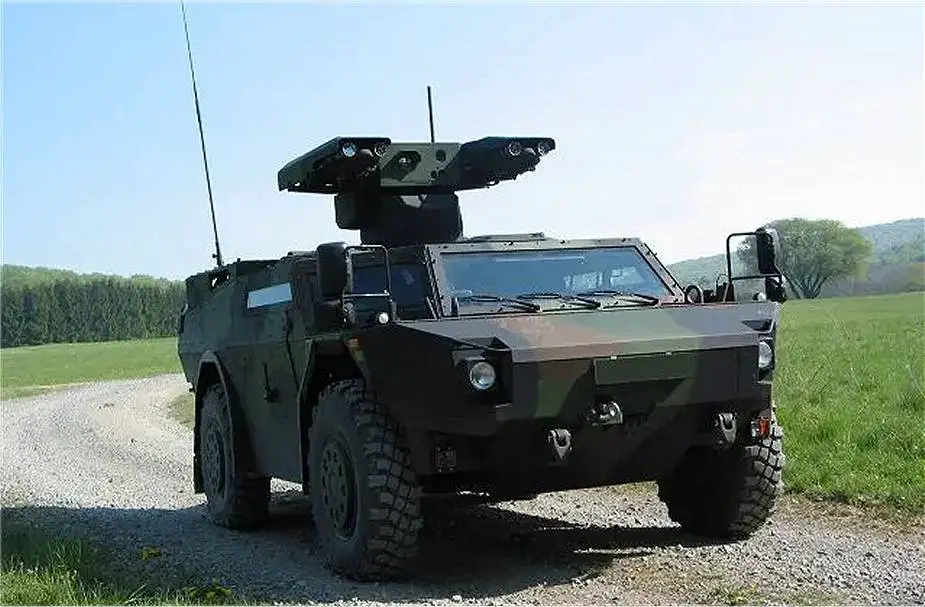 |
| Fennek Stinger Weapon Plattform: is equipped with a Stinger Weapon Platform (SWP) – a launch unit with four Stinger missiles for mid-range air defense. The operation of the system is possible both autonomously from onboard the vehicle as well as remote-controlled as part of a ground-supported air defense system. |
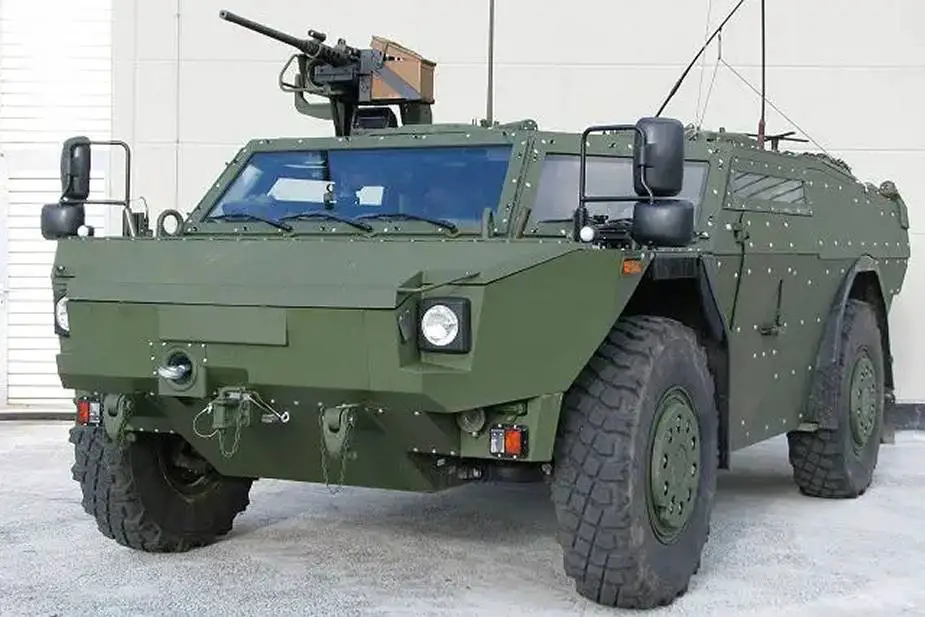 |
| Fennek Tactical Air Control Party: is deployed as an air control vehicle within the framework of the Tactical Air Control Team. Its crew has the task of supporting the air force when engaging ground targets. |
Technical Data
| Armament |
|
For its self-defense, the Fennek reconnaissance vehicle is equipped with a type of armament that can be operated under armor and NBC protection. Depending on the vehicle configuration, the electrically controlled gun mount is designed to carry a 40 mm automatic grenade launcher (AGL), a .50 caliber MG or a 7.62 caliber MG. The sighting system consists of a periscope derived from the PERI Z 17 currently in service. As an option, the periscope can be upgraded with additional plug-in modules, such as an image intensifier.
|
| Design and protection |
|
The hull of the Fennek allows flexible armor protection concepts and is typical of all-welded aluminum armor with additional armor modules providing protection from 7.62 mm AP small arms fire and shell splinters. The crew compartment provides also protection against AP mines. The Fennek is operated by a three-man crew consisting of the commander, driver, and radio operator/ observer. The driver is seated at the front of the vehicle with excellent vision to his front via three large bulletproof windows. The convenient arrangement of the windscreen and side windows and a seat positioned far forward provide the driver with an excellent field of view of more than 180°. In reconnaissance configuration, the rear part of the vehicle accommodates seats for the commander and radio operator/ observer. It offers also space for the necessary extensive on-board equipment and rations. The commander's and the radio operator/observer's stations are fitted with suitable seats. They were optimized to meet ergonomic requirements and are designed in accordance with German road licensing regulations. Seat height adjustment operated by an electric motor permits both under-armor and out-the-hatch observation. Additionally, the radio operator/ observer's seat can be swiveled 360 degrees (commander's seat: ±45°). In the event of sudden danger, the observer can engage the quick lowering mechanism and withdraw into the fighting compartment within a few seconds. During the rest phases, it is possible to relax under the raised seat.
|
| Mobility |
| The engine compartment is at the rear of the Fennek and the power pack can be removed from the vehicle as a single unit to facilitate field replacement. The Fennek's benefits lie in its high on- and off-road mobility, which is primarily the result of an engine technology that reflects the latest state of the art. The Fennek is motorized with a Deutz BF6M 2013C 6-cylinder turbocharged inter-cooled diesel developing 240 hp. coupled to an automatic transmission with six speeds with a torque converter and lock-up. The power pack features a fully automatic transmission and transfer box. Selectable four-wheel drive and limited-slip differential are equally standard equipment. The H layout of the driveline allows a very low profile, with the power being transmitted to the wheel gears via angular gearboxes. The engine meets the exhaust emission values specified by Euronorm III. The Fennek can run at a maximum road speed of 112 km/h with a maximum cruising range of 1,000 km. The vehicle is capable of negotiating 60% forward and 35% side slopes and its turning circle of less than 13.0 m and fordability to a depth of more than 1 m additionally make for the vehicle's outstanding cross-country mobility. The Fennek is also equipped with a tire pressure control system which allows the driver to adjust tire pressure on the move as required by terrain conditions and situations. |
| Combat Equipment |
| Standard equipment of the Fennek includes a fire detection and suppression system in the engine compartment, a heating and cooling system, and a wash/wipe system. A wide range of optional equipment can be fitted including an NBC system, various communications systems, and two water jets to give a full amphibious capability. The NBC protection system combined with the air-conditioning system is available for the entire crew compartment. The Fennek is also fitted with special exhaust ducting to minimize the IR signature. Automatically and manually released fire warning and extinguishing system in the powerpack compartment for crew protection. The key items of equipment at the commander's and radio operator/ observer's stations include the observation and reconnaissance equipment, command and control equipment, central system control panel, an electrically or mechanically controlled and fired gun mount with night sight (optional) as well as an HF and VHF radio system. The crew members communicate through an intercom system. The rearview camera mounted at the back of the vehicle and the monitor integrated into the instrument panel provide the driver with the necessary assistance for rapid evasive and skillful maneuvering of the vehicle. The use of image intensifier goggles makes it easier for the driver to operate the vehicle safely and precisely even at night. The control and display concept was developed in accordance with ergonomic requirements making it easy for the driver to handle a large number of vehicle functions. The fire warning and extinguishing system are triggered automatically in case of fire. In emergencies, the driver can activate the fire extinguishing system in the powerpack compartment from his station. Additionally, the Fennek is equipped with a cable winch for recovery operations. The command and control equipment (FuWES) integrates the reconnaissance vehicles in the C3 network. The FuWES consists of the Commander IV (integrated version) computer and includes a 15-inch touchscreen display and a keyboard. For orientation in cross-country terrain, digitized maps are used showing the vehicle's own position, target position as well as current battlefield environment. This information is continuously updated between the vehicle and command post via a data radio link (HF and VHF radios). When configuring the vehicle system, special emphasis was placed on universal interfaces so that alternative hardware and software can be used. To ensure a high level of reconnaissance efficiency, the Fennek is fitted with observation equipment consisting of a thermal imager, a CCD day vision camera, and a laser range finder. The observation equipment is packaged in a sensor head mounted on an extendible mast. The sensor head can be controlled in azimuth and elevation and raised to a height of 1.5 m above the vehicle roof, i.e. 3.29 m above ground. For observation from a concealed position, the sensor head can be tripod-mounted at an exposed location for "remote operation" up to 40 m from the vehicles. Even then, it is still operated from the crew stations in the vehicle. The use of a hybrid navigation system consisting of the inertial reference unit and GPS (Global Positioning System) makes it possible to determine at a high degree of accuracy the vehicle's own position and north. Targets are acquired by means of the laser range finder as part of the observation and reconnaissance equipment as well as the line-of-sight azimuth and elevation angle measuring equipment. Along with the navigation system, it is thus possible to precisely determine the position coordinates of reconnoitered objects. |
Specifications
| Armament | Armor |
| One 7.62mm machine or 12.7 machine gun or 40mm automatic grenade launcher | Protection against 7.62mm AP rounds and AP mines. The vehicle can be equipped with add-on armor (7.62 Dragunov) |
| Country users | Weight |
| Germany, Qatar, and the Netherlands | 11,000 kg |
| Designer Country | Speed |
| Germany and Netherlands | 112 km/h |
| Accessories | Range |
| Sensor suite, telescopic mast, GPS, Tactical Command and Control System, HF and VHF radio systems, CCD day vision camera, and a laser range finder. | - 1,000 km road - 460 km cross-country |
| Crew | Dimensions |
| 3 | Length: 5.58 m; Width: 2.55 m; Height: 2.29 m |
Details View
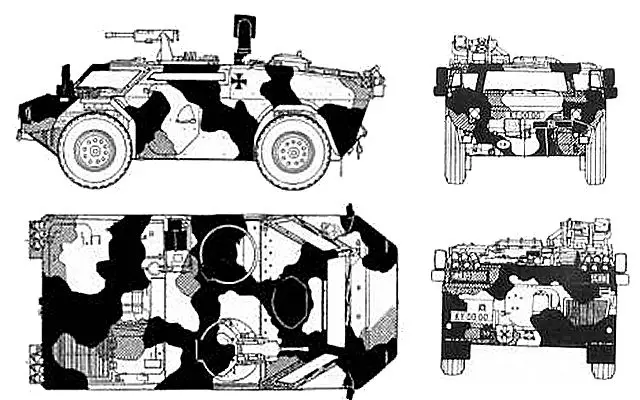 |
|
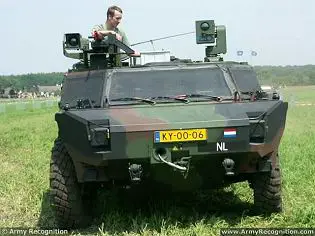 |
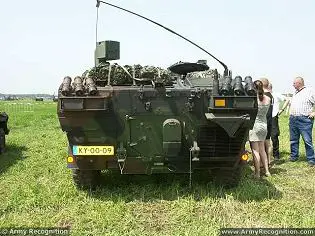 |
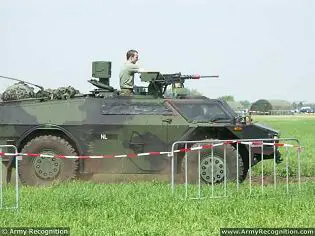 |
 |
Pictures - Video



























